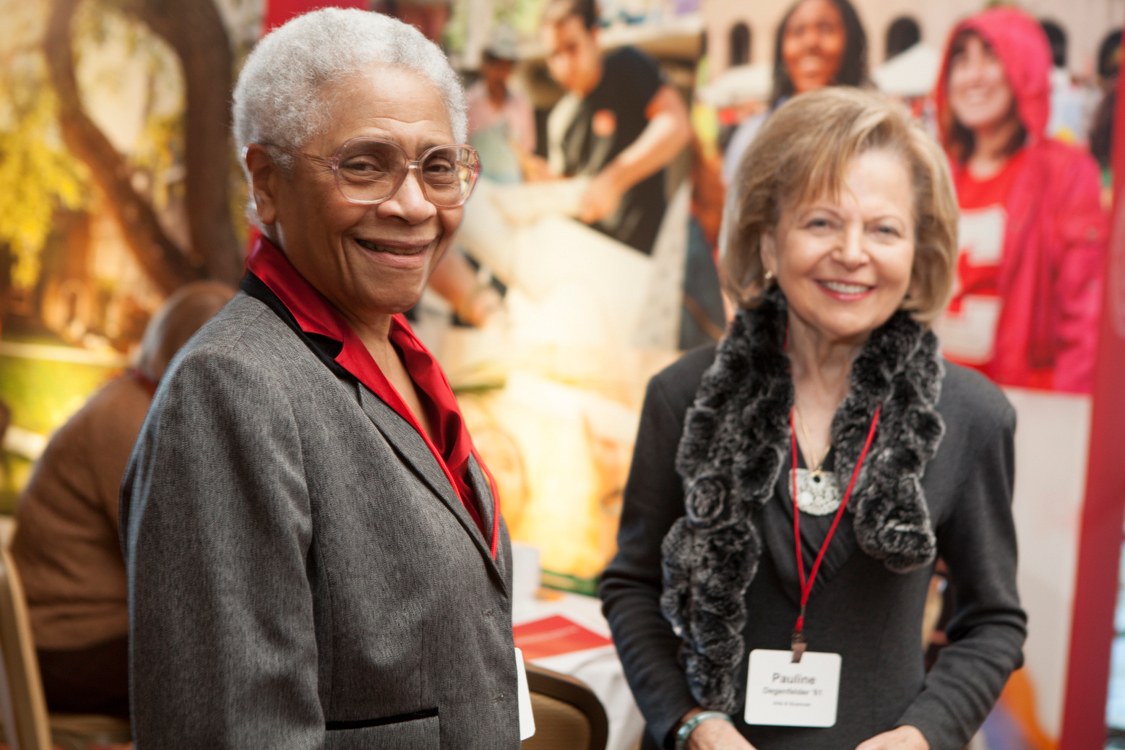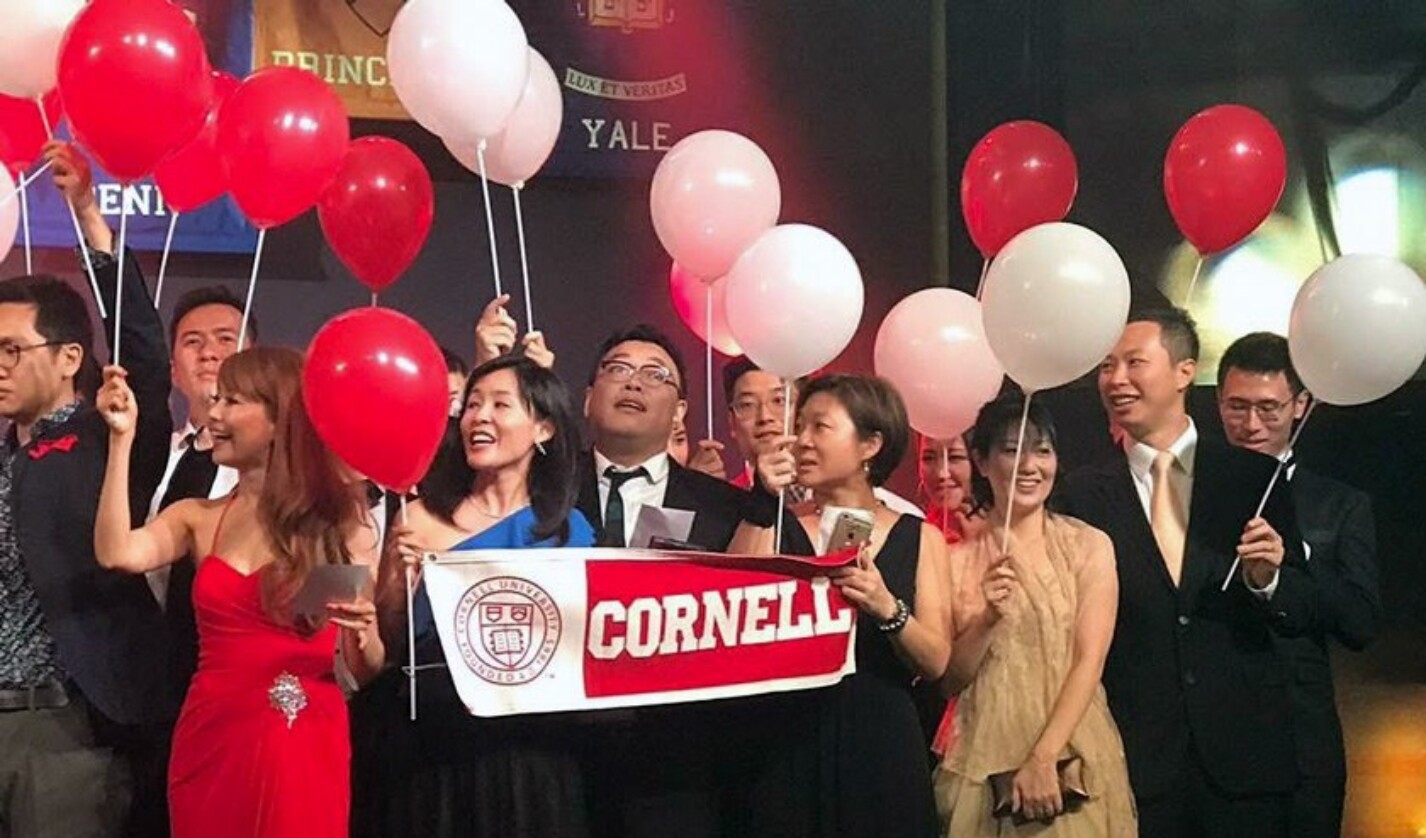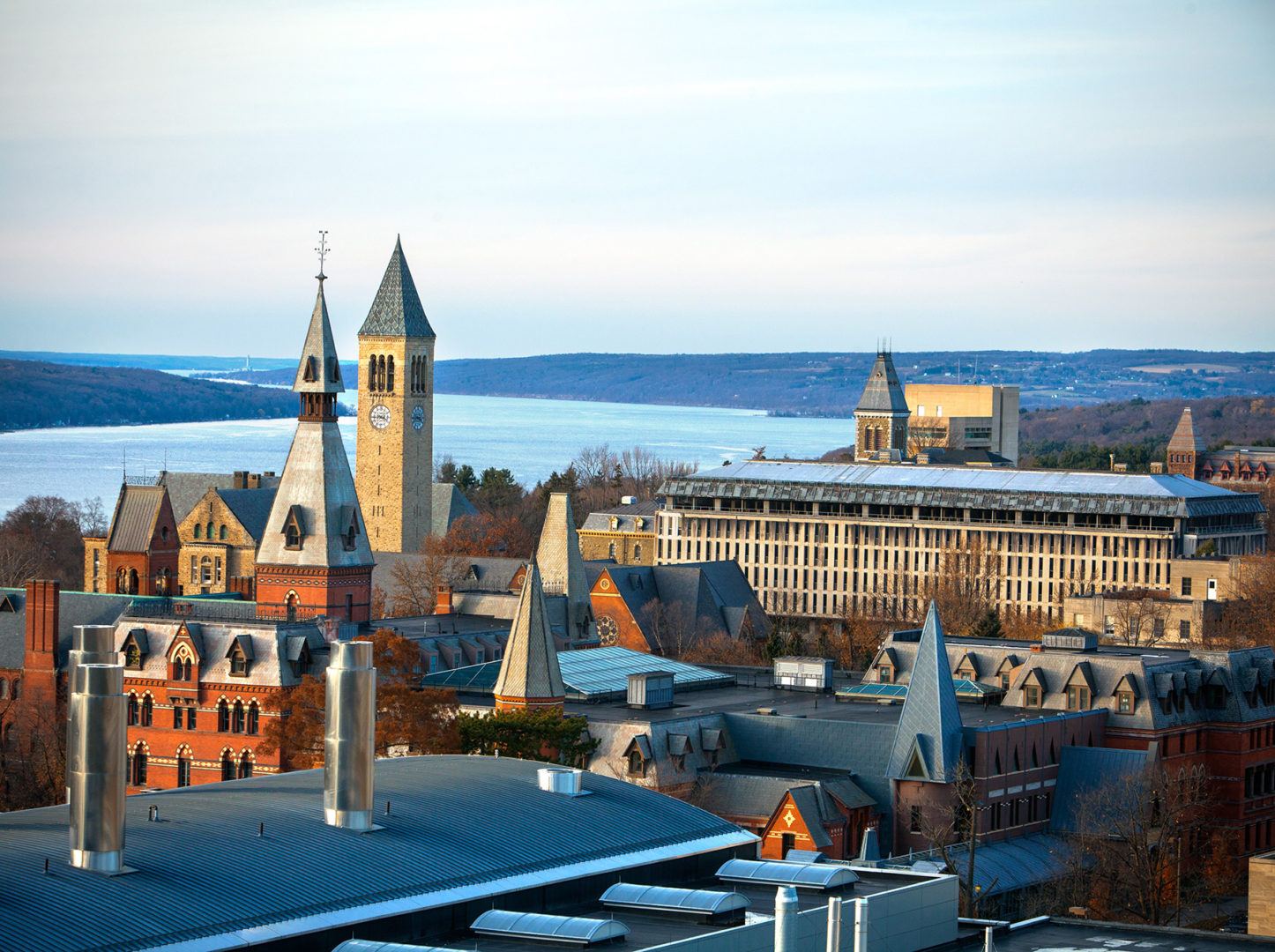Alumni, parents, and friends gave to Cornell in significant amounts during fiscal year 2019, including surpassing an Annual Funds record set just 12 months earlier.
The university received more than $550 million in new gifts and commitments in FY19, including $340 million raised for the Ithaca and Cornell Tech campuses and $210 million for Weill Cornell Medicine. More than 80,000 donors contributed to these results.
“With incredible teamwork across our three main campuses, Cornell saw an 8% increase in giving over 2018,” said Fred Van Sickle, vice president for alumni affairs and development (AAD). “Special congratulations are due to our Weill Cornell Medicine colleagues for their $210 million year. We are very grateful for the more than 80,000 donors, volunteer leaders and staff who came together to make these results possible.”
With incredible teamwork across our three main campuses, Cornell saw an 8% increase in giving over 2018.
Nearly 85,000 Cornellians engaged with the university in FY19, including a record number of alumni who returned with their friends and families to attend Homecoming and Reunion. Thousands of others participated in Cornell alumni events based in communities around the world, and more than 10,000 alumni engaged in online experiences, such as the Cornell Forbes 30 Under 30 digital event.
Annual Funds: Giving that benefits all students
Gifts made to the Cornell Annual Funds totaled $45.8 million—surpassing the FY18 record of $44.4 million.
“Of the last 17 years, 16 have been record-breaking,” said Tom LaFalce ’94, acting director of Annual Giving Programs. “We are fortunate to have such loyal support from our alumni, parents, and friends.”
Unlike the endowment, Annual Fund dollars are available to use right away where they are needed most, benefiting current students.
“This allows our deans and other university leaders to address their most pressing needs,” LaFalce said, “including student financial aid, development of new educational programs, and support for experiences like internships and attendance at conferences.”
Recent Annual Fund gifts have funded expanded library hours during exam periods, supported undergraduate student research projects, enabled Big Red athletics to recruit top athletes and purchase equipment, added 2,770 new plants to the Cornell Botanic Gardens, and helped students to study off campus and abroad.
Giving Day: Giving together is more fun
Giving Day, March 14, saw more records fall: A total of 13,858 donors contributed $7,869,264 to Cornell; the total number of gifts was the highest received on any single day in Cornell history. And the number of students who gave on Giving Day—1,985—was more than double the total of two years ago (933).
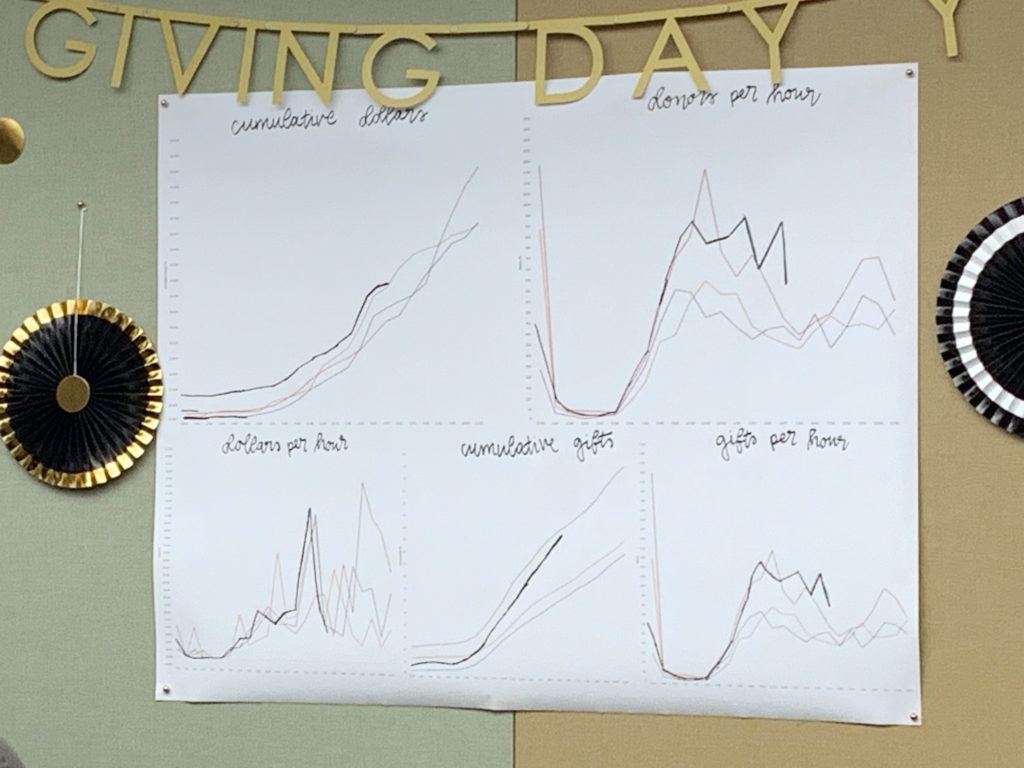
“We try to make Giving Day feel as much like an event as a fundraising campaign,” said Andrew Gossen, executive director, digital, at AAD. “Donors enjoy seeing the collective action of the Cornell community as the results grow in real time, especially because every gift counts on Giving Day, no matter the size.”
“We attribute this growth to a few variables,” said Gossen. “On-campus events have certainly helped raise awareness of Giving Day for students.”
Students attending the 2019 on-campus events wrote 3,310 thank you notes to Giving Day donors. The main event in Willard Straight Hall nearly doubled in size. There were 1,135 attendees this year, as opposed to 675 last year.
“We’ve also really opened up the platform to allow student groups to have their own pages on the site,” said Gossen. “The groups now have a vested interest in giving and in promoting their pages to fellow students, friends, and family.”
This year’s Giving Day challenge used a raise-the-bar model, in which colleges and units tried to surpass their own donor counts from last year. “This was really successful and provided a nice element of drama at the end of the day,” Gossen said. “We could see from web traffic that lots of people were watching to see how many colleges and units would get across the finish line and earn the bonus challenge funds. All of them made it!”
Giving Day is important to the university’s overall fundraising efforts because it is the primary vehicle for acquiring new donors. “It also allows us to get philanthropy and alumni support of Cornell in front of the students in a way that’s fun, informal, and not too heavy-handed,” Gossen said.
Senior Class Campaign: Giving to what you love
In 2019, nearly one-third of all graduating seniors made a gift to the Senior Class Campaign, a significant increase in participation over the past few years.
Today’s seniors have the option to give to the fund of their choice. Some choose to give to their colleges, while others give to specific beneficiaries, such as Cornell Cinema, Women’s Ultimate Frisbee, or the library. Senior class gifts in 2019 ranged from $5 to $2,500.
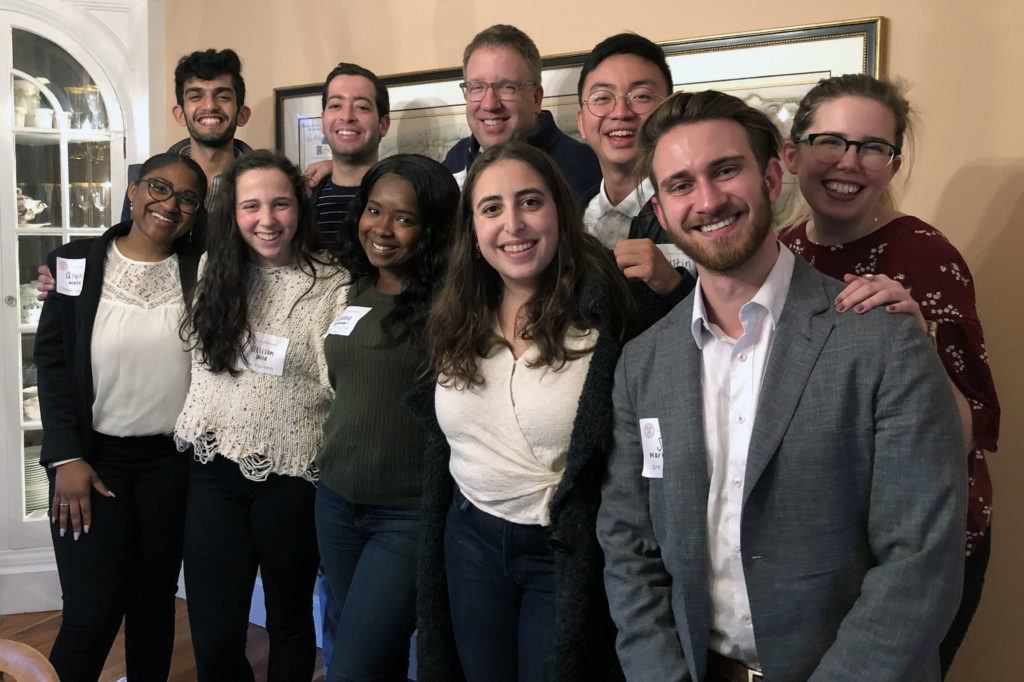
“Our message to seniors is, ‘Hey everyone, there is something at Cornell that you love,’” said Kendra Saldana ’12, assistant director of Young Alumni Giving and staff adviser to the Senior Class Campaign student team. “The senior campaign lets you give to what you love.”
Alumni Strategic Plan: Engaging students, young alumni, and any Cornellian
In May 2019, the Board of Trustees Committee on Alumni Affairs endorsed a five-year Alumni Engagement Strategic Plan by a unanimous vote. The plan has three engagement imperatives: inspiring more students to embrace the alumni network; increasing young alumni engagement; and developing flexible, lifelong journeys for all alumni.
“We worked really hard to be very, very inclusive and multi-generational in seeking feedback,” said Michelle Vaeth ’98, associate vice president for AAD. “More than 600 Cornellians of all ages, including 110 students, participated in the small group discussions about the draft plan we presented at the Cornell Alumni Leadership Conference.
“It had been ten years since the last alumni engagement strategic plan had been created, and five years since that former plan was sunsetted,” Vaeth explained. “In the meantime, many, many things had shifted—including how alumni choose to engage, the explosion of social media, and the growing diversity of our student body,” she said.
The new plan hopes to move the needle on engaging with alumni—including young alumni, international alumni, and diverse alumni—as well as on connecting students with Cornell’s vast alumni network. More than 1,000 alumni participated in developing the plan.
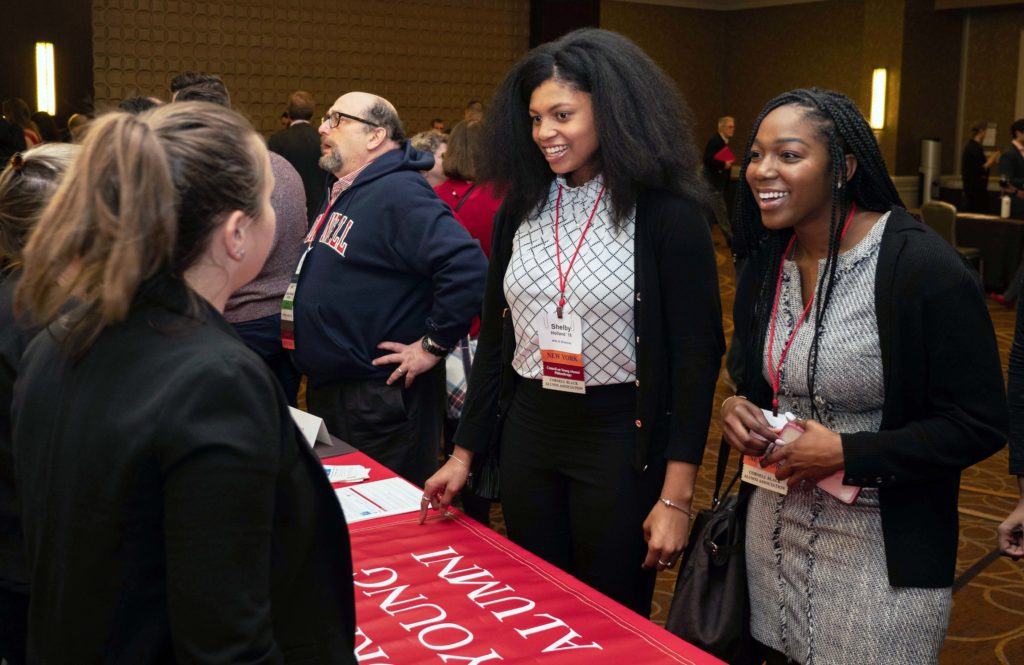
It calls out “cultivating multi-generational dialogue and community” as a special area of focus. “Events such Homecoming, Reunion, and the Cornell Alumni Leadership Conference bring together students and alumni from across seven decades, with a vast range of experience and backgrounds,” said Vaeth. All three events had record-breaking attendance in FY19.
The division is also looking at how to measure engagement. “This is not just about the numbers,” said Vaeth. “We need to balance quality, versus quantity, of engagement.”
Digital engagement: Innovating in all practices
Alumni affairs has expanded its traditional communication platforms—phone, mail, and email—to embrace new platforms and ways of communicating. Digital engagement strategies feature texting campaigns, the use of mobile payment platforms, digital download offers, and livestreamed events. “We’re excited to see how many people have interacted with us through these new venues,” said Saldana, the assistant director of Young Alumni Giving.
In fall 2018, Young Alumni Programs launched a series of podcasts featuring profiles of recent Cornell graduates. Featured alumni talk about the role Cornell played in their professional and personal lives. After a successful 22-episode first season, alumni affairs recently launched season two of “Fresh from the Hill: Inside Stories of Noteworthy Cornellians.”
“Season two will not only feature notable Cornell alumni, but it will also include episodes about places (check out the first episode of the season on the Cornell Club NYC), stories (a special Halloween ghost stories episode), units, events, and much more,” said Amanda Massa, associate director of Young Alumni Programs.
CUeLINKs (Cornell University: Learning, Informing, Networking=Knowledge Sharing) connects students with alumni, so they can network, get career advice, and take advantage of the wealth of knowledge of the Cornell community. Launched in spring 2018, CUeLINKS now has more than 3,450 alumni profiles and nearly 3,500 student users.
“Both alumni and students find the system to be extremely useful and are enjoying it,” said Renu Deshmukh MA ’19, special projects assistant with AAD. “Students are actively contacting more and more alumni, and 90 percent of them have joined the peer network—to help other students like themselves,” she said. “CUeLINKs is another great way for alumni to give back to our alma mater, by sharing their knowledge, expertise, and experiences!”

